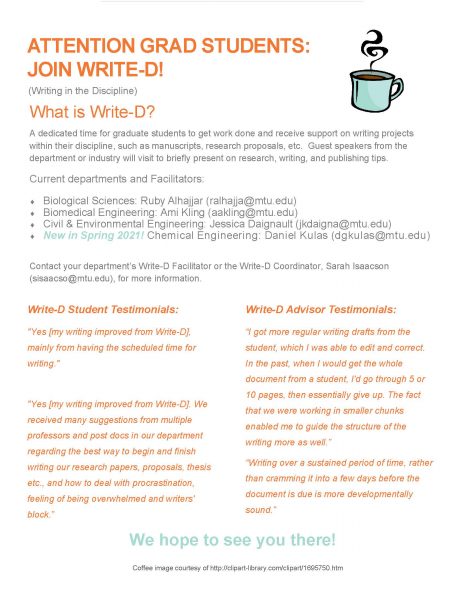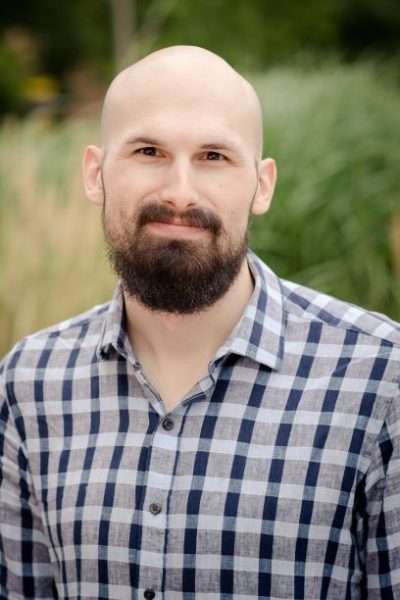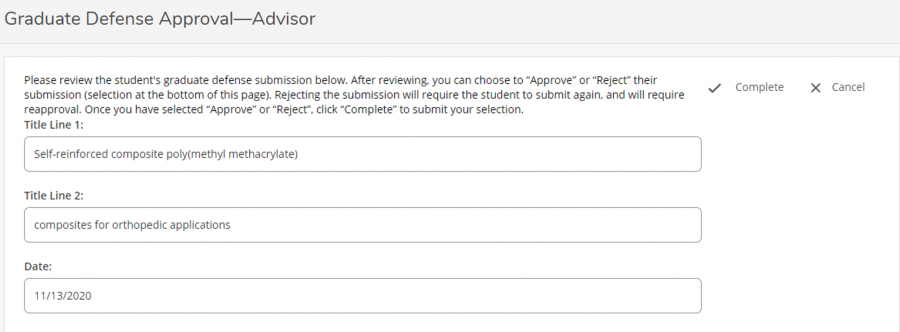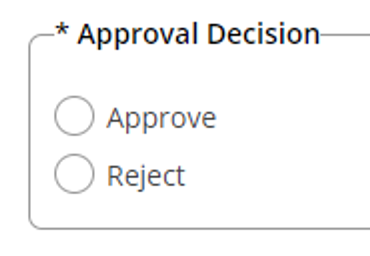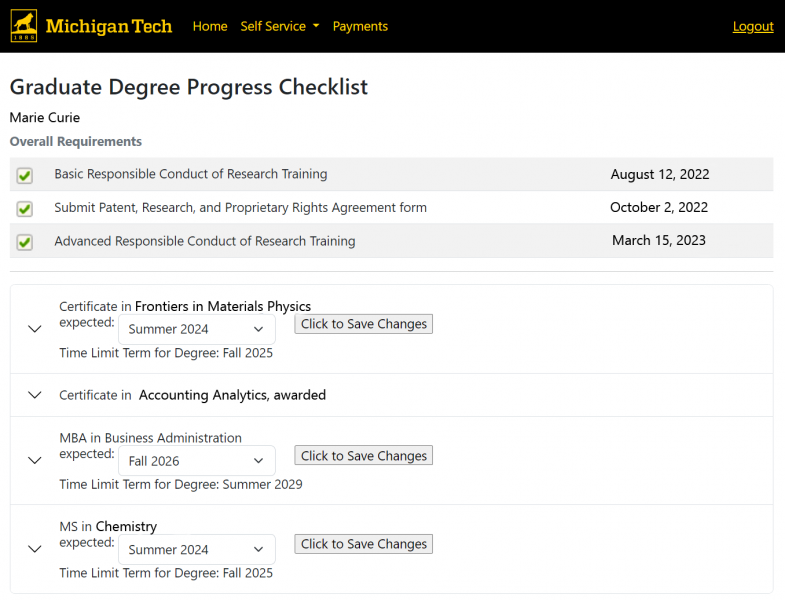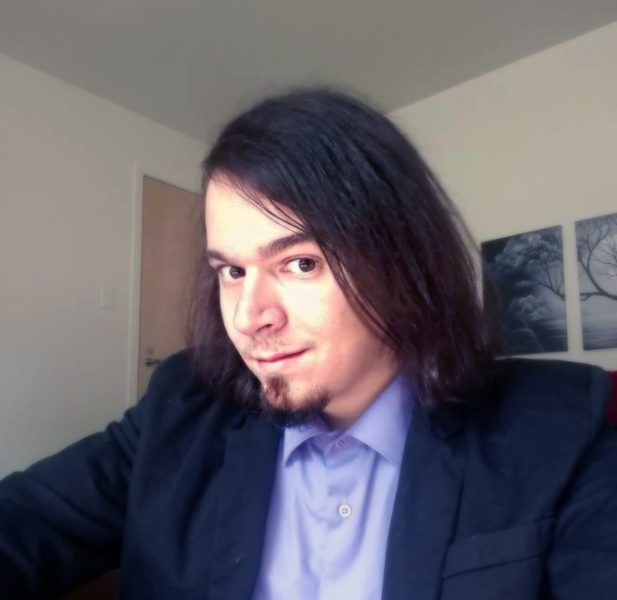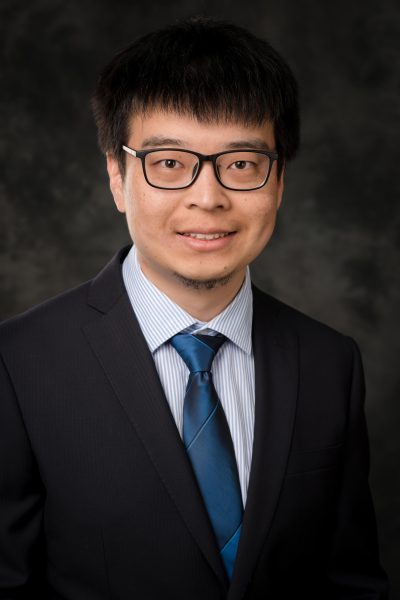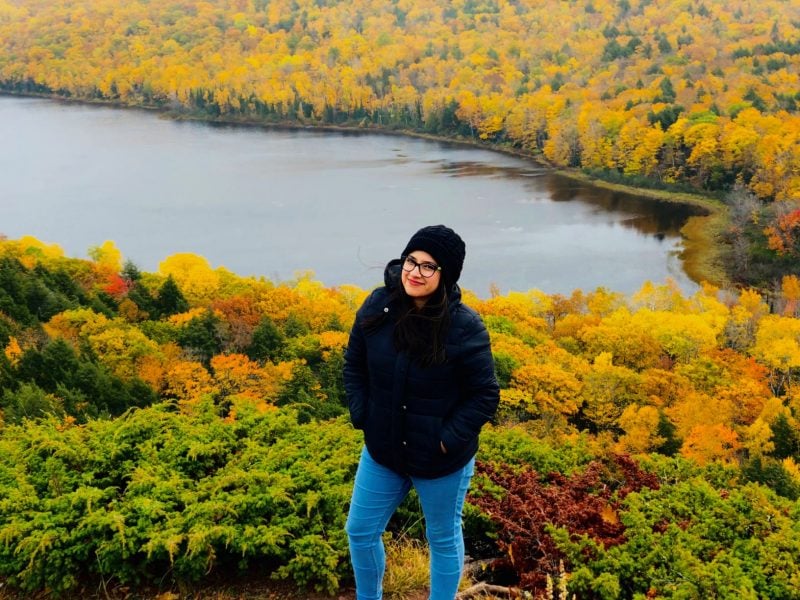What is Write D?
A dedicated time for graduate students to get work done and receive support on writing projects
within their discipline, such as manuscripts, research proposals, etc. Guest speakers from the
department or industry will visit to briefly present on research, writing, and publishing tips.
